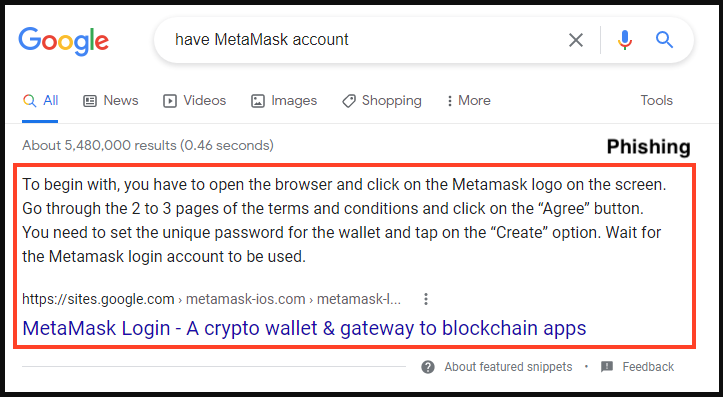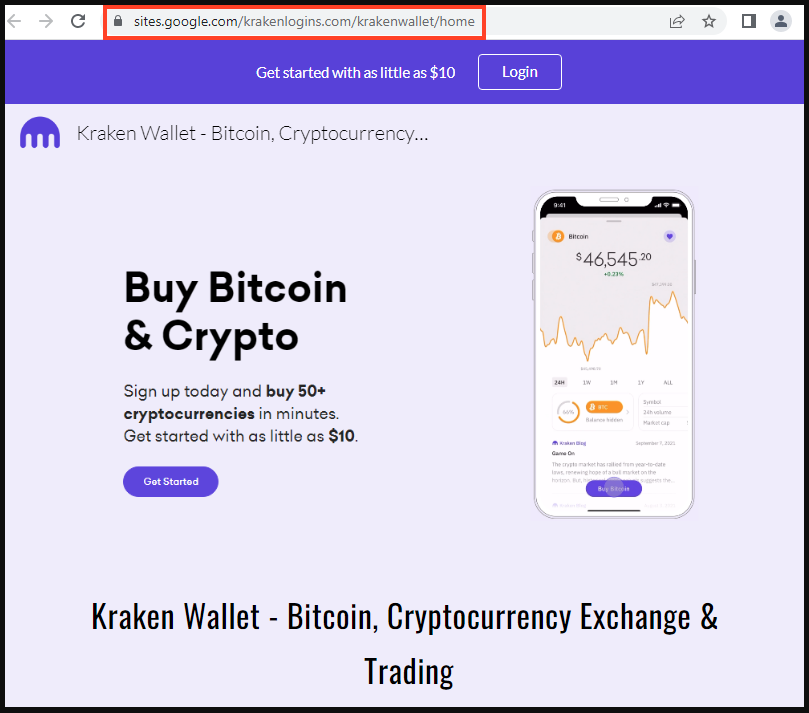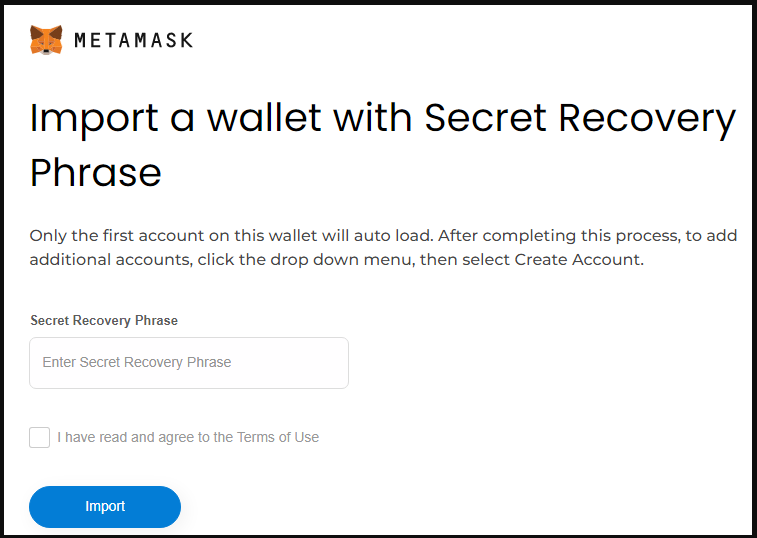A new large-scale phishing campaign targeting Coinbase, MetaMask, Kraken, and Gemini users is abusing Google Sites and Microsoft Azure Web App to create fraudulent sites.
These phishing pages are promoted through comments posted to legitimate sites by a network of bots controlled by the threat actors. Posting links to phishing pages on various legitimate sites aims to increase traffic and boost the malicious site’s search engine rankings.
Furthermore, because the phishing sites are hosted in Microsoft and Google services, they aren’t flagged by automated moderator systems, allowing promotional messages to stay in the comment section for longer.

The new campaign was spotted by analysts at Netskope, who noted that this tactic has allowed some of the fraudulent sites to appear as the first result in Google Search.
Even worse, as shown below, Google has also included the phishing pages as featured snippets, giving them the highest exposure possible in the search results.

Abusing legitimate services
Google Sites is a free web page creation tool, part of Google’s online service suite, allowing users to create websites and host them on Google Cloud or other providers.
Similarly, Microsoft’s Azure Web Apps is a platform helping users create, deploy, and manage web applications and websites.
Both services are trusted by internet security tools, offer competitive pricing and high availability, so they are a good option for creating phishing pages.
The crooks in the campaign seen by Netskope created sites that mimicked Metamask, Coinbase, Gemini, and Kraken, targeting people’s wallets and their assets.
The sites are just landing pages, and their visitors are redirected to the actual phishing sites when they click on the “login” buttons.

Targeting wallets and services
The phishing campaign is currently attempting to steal MetaMask wallets and credentials for crypto exchanges, such as CoinBase, Kraken, and Gemini.
The MetaMask phishing site attempts to steal the user’s password and wallet’s secret recovery phrase (seed phrase). This information allows the threat actor to import the wallet on their own devices and drain the contents.

For the crypto exchange phishing pages, the threat actors attempt to steal their login credentials.
In all four cases, users who enter their credentials are redirected to a fake 2FA (two-factor authentication) page that requests the victim to provide their phone number.
After entering the code, the websites generate a fake error alleging unauthorized activity and authentication problems, prompting the victim to click on an “Ask Expert” button.
.png)
This takes the victims to an online chat page where a scammer pretending to be a customer support agent promises to solve the problem by directing the victim to install the TeamViewer remote access tool.
The remote access is likely to allow the threat actors to retrieve the multi-factor authentication codes required to log in to the exchanges with the stolen credentials.
Don’t get phished
When attempting to log in to a crypto exchange, always make sure you are on the platform’s official website and not on a clone.
Users of locally installed cryptocurrency wallets, such as MetaMask, Phantom, and TrustWallet, should never share their recovery phrase on any website, regardless of the reason.
It is also important to remember that Google Ads can be abused, and Google Search SEO can be manipulated, so the ranking of the results shouldn’t be seen as a guarantee of safety.
Finally, protect your cryptocurrency exchange accounts with MFA and keep most of your crypto investments on cold wallets that are much more challenging to hack.
Source :
https://www.bleepingcomputer.com/news/security/phishing-attack-abuses-microsoft-azure-google-sites-to-steal-crypto/